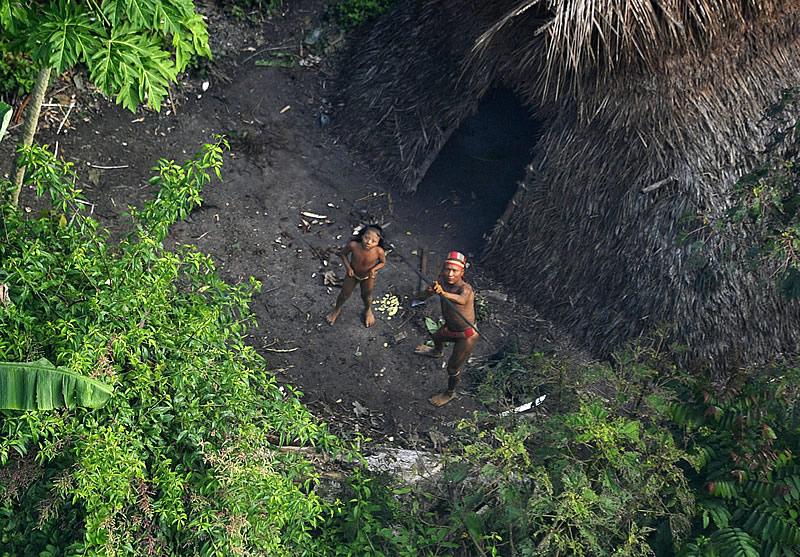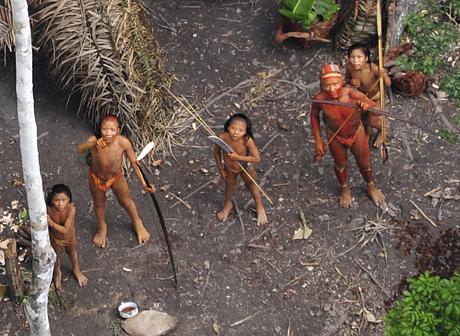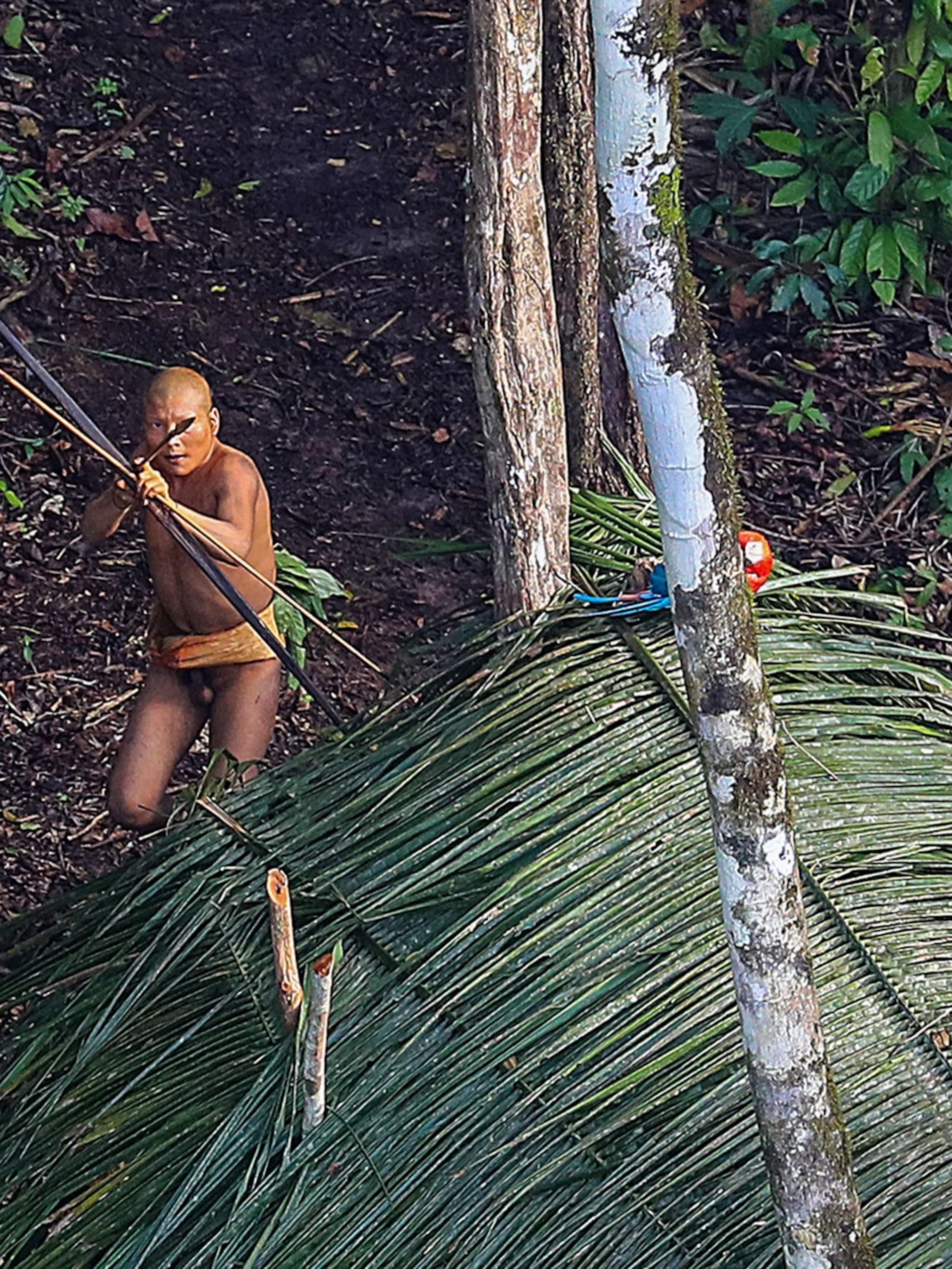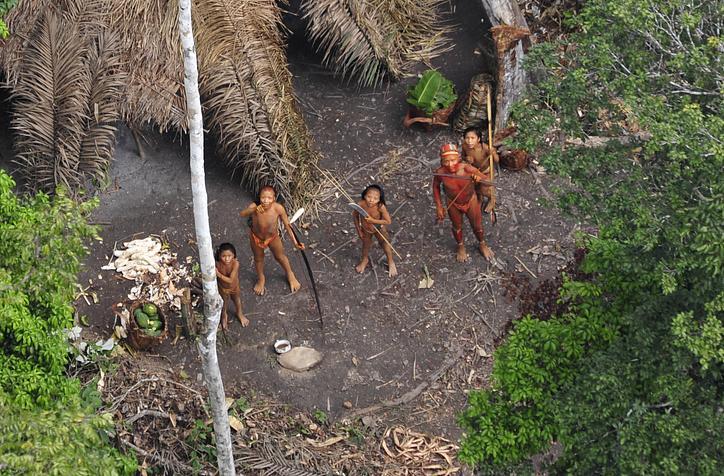Influencer Culture Poses Risks to Uncontacted Tribes as Concerns Mount
In recent events, the arrest of a U.S. tourist in Brazil has reignited concerns over the impact of social media influencers on uncontacted tribes. The legitimate excitement of explorers and adventure-seekers can morph into a perilous reality for Indigenous communities that have chosen to remain isolated. The intersection of influencer culture and these vulnerable populations raises critical questions about ethics and responsibilities. The cultural integrity of uncontacted tribes is at risk,as their secluded existence can become a target for sensationalism and exploitation in the pursuit of ‘likes’ and followers.
Experts warn that the allure of showcasing uncontacted tribes as unique content can led to disastrous consequences, both for the tribes and the influencers involved. Among the potential risks are:
- Health Hazards: Exposure to outsiders can introduce diseases to which these communities have no immunity.
- Exploitation: The commodification of Indigenous cultures for social media fame undermines their dignity and autonomy.
- Loss of Land and Autonomy: Increased visibility may lead to encroachment on their territories by outsiders and commercial interests.
As the line between adventure and intrusion blurs, advocates urge influencers to reconsider the implications of their content.The obligation lies not only with the adventurers themselves but also with social media platforms to create guidelines that protect uncontacted tribes from being exploited in pursuit of engagement metrics.

The Impact of Social Media on Indigenous communities and Their Vulnerabilities
The recent arrest of a US tourist attempting to contact uncontacted tribes has ignited a serious conversation regarding the role of social media as a potential catalyst for exploitation and vulnerability among Indigenous communities. Influencers and content creators, often motivated by their desire for online engagement, may inadvertently encourage reckless behavior that jeopardizes these tribes’ well-being. The allure of documenting the “exotic” has far-reaching consequences, often overshadowing the very real risks faced by marginalized groups.
Key concerns highlighted by advocacy groups include:
- Loss of Cultural Integrity: Social media can lead to misrepresentation and commodification of Indigenous cultures, undermining their authenticity.
- Increase in Exploitation: The demand for content may drive individuals to intrude upon sacred lands,resulting in disturbance and potential harm to both the tribes and their environments.
- Threats to Safety: The visibility that comes with social media can attract unwanted attention,putting these communities at risk from outsiders with ulterior motives.
in this digital age, it is crucial for influencers and their followers to recognise the delicate balance between curiosity and respect for Indigenous ways of life. Recognizing these communities’ vulnerabilities is the first step in advocating for a more responsible and ethical approach to engagement with the world’s most at-risk populations.

Urgent Call for Ethical Tourism Practices to Protect Isolated Populations
Recent incidents involving tourists attempting to access remote areas inhabited by uncontacted tribes have raised serious alarm among conservation groups and indigenous rights advocates. The arrest of a US tourist who allegedly attempted to engage with an isolated tribe serves as a stark reminder of the potential dangers posed by reckless tourism. As social media influencers continue to seek out exotic locations for content creation, the growing trend threatens to undermine the delicate balance between cultural preservation and the influx of external pressures on these vulnerable communities.The call for a collective reassessment of tourism practices is more urgent than ever, as the safety and integrity of isolated populations hang in the balance.
To address this pressing issue, stakeholders and responsible travelers must consider the following to promote ethical tourism practices:
- Respect Indigenous Lands: Always seek permission and consider the impact of your presence on the local ecosystem and culture.
- Support Local Communities: Engage in tourism that benefits indigenous residents economically and socially without compromising their traditions.
- Educate and Advocate: Raise awareness about the importance of protecting the rights and lifestyles of uncontacted tribes and the potential repercussions of tourism on their existence.
- Choose Ethical Tour Operators: Select companies that prioritize enduring practices and adhere to guidelines set forth by indigenous organizations.
By adopting these essential practices, we can safeguard uncontacted tribes and enhance our understanding of their rich cultures, ensuring that future generations can appreciate their heritage without subjecting them to the risks that come with unregulated tourism.

strategies for Balancing Cultural Preservation with Modern Influencer Trends
the growing influence of social media has transformed the way we connect with cultures worldwide, yet this revolution comes at a cost. Balancing the preservation of uncontacted tribes with the allure of modern influencer trends poses a significant challenge. To address this, several strategies can be implemented, prioritizing the tribes’ integrity while acknowledging the evolving media landscape:
- Ethical Guidelines for Influencers: Influencers should adhere to strict ethical standards that protect the cultural heritage of uncontacted tribes. This includes avoiding visits to these communities unless fully sanctioned by applicable humanitarian organizations.
- Community Engagement: Collaborating with cultural anthropologists and local leaders can help create awareness around the implications of influencer activities, ensuring that tribes are not objectified or exploited.
- Digital Literacy Programs: By educating potential influencers on the cultural significance and the potential harm of their actions, we can cultivate a generation that respects and uplifts rather than intrudes.
- Promotion of Authentic Voices: Amplifying the narratives and experiences of indigenous peoples can counterbalance the impact of influencers, encouraging a richer and more respectful dialogue around cultural practices.
Implementing these strategies requires a commitment from all parties involved, including social media platforms, influencers, and advocacy groups. Promoting a culture of responsibility within the digital space not only safeguards the unique identities of uncontacted tribes but also fosters a deeper understanding among a global audience about the importance of cultural preservation in the age of connectivity. Essential to this effort is ensuring that the development of influencer trends does not overshadow the essential rights and sovereignty of indigenous peoples.
